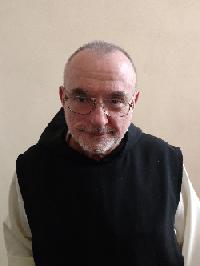Feast of St. John the Apostle
 At various awards ceremonies, the winners will spend some time thanking all the people who have helped them to reach this point in their lives: writers, cast members, family, etc. The introductions to many books often include a long list of those who have supported the author: editors, students, and long-suffering family members. I couldn’t have done it without you.
At various awards ceremonies, the winners will spend some time thanking all the people who have helped them to reach this point in their lives: writers, cast members, family, etc. The introductions to many books often include a long list of those who have supported the author: editors, students, and long-suffering family members. I couldn’t have done it without you.
Sometimes we have those peak moments of realization when we become aware of how much we owe to those who have supported us, often in hidden, dark, and unobtrusive ways. So much that has gone before us makes our lives possible. We couldn’t have done it alone, but didn’t appreciate that at the time. Peak moments, transitions, or even dark times of staring into empty graves suddenly awaken us to our life as it passes before our eyes. We see what had been there and sustained us, even though we didn’t appreciate it. So much and so many had prepared the ground for us. The interdependency and interrelatedness of existence comes to light as the womb of our being. We emerge out of a communion with life, out of a koinonia, out of a fellowship. We are most truly and really ourselves when we lose ourselves in meeting, in giving, in loving. We are alive when we find ourselves in others. I am because we are. This is the fellowship, the koinonia, the communion that becomes manifest in our communities and our Church.
The need for self-assertion and self-proclamation diminishes in the light of that communion and fellowship. John is content to be know as the “other disciple.”
 His own person is redefined by being a disciple, one drawn into a fellowship which becomes a manifestation of fellowship with God. He does not protest to Peter, “I got there first.” It is not about comparison and competition. It is not about me. I couldn’t have done it alone. I couldn’t have done it without you.
His own person is redefined by being a disciple, one drawn into a fellowship which becomes a manifestation of fellowship with God. He does not protest to Peter, “I got there first.” It is not about comparison and competition. It is not about me. I couldn’t have done it alone. I couldn’t have done it without you.
John says that he has written these word that our joy may be complete. He says: our joy. Our deepest desires reach out for joy, peace, and love, realities which of their very nature must be shared. They cannot be possessed or owned. The word complete means to be full, overflowing, never self-contained. His words are a testimony and witness to what he has seen with his eyes, heard with his ears, touched with his hands. What he has seen and heard have awakened and illumined a reality within him. Belief releases the full reality of what is seen. He saw and believed. What we see and touch opens us to that fellowship with one another and with God. External conformity and impassive listening will never touch the life the Spirit wants to share with us. The witness and proclamation of the Gospel and liturgy come to life when they reveal to us the communion and fellowship which already sustains our life. We could never have done it alone.
I couldn’t have done it without you.
